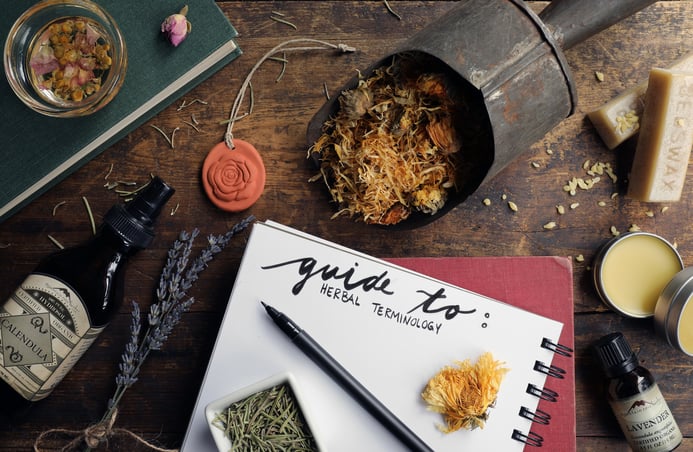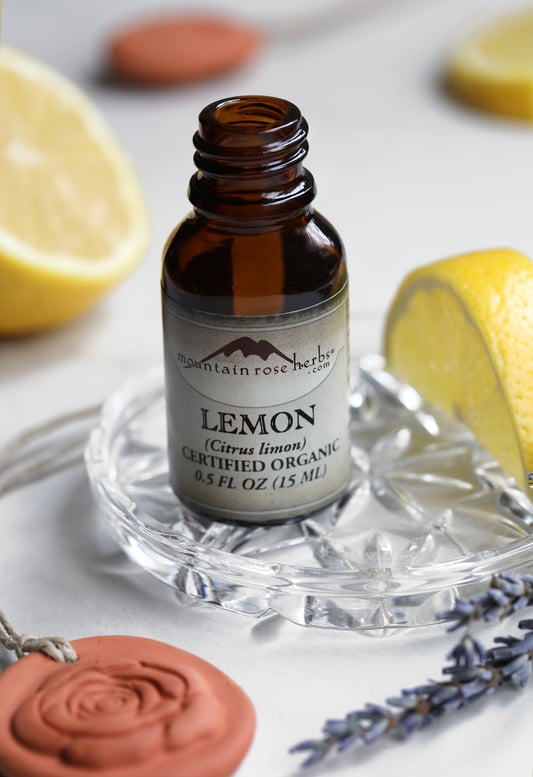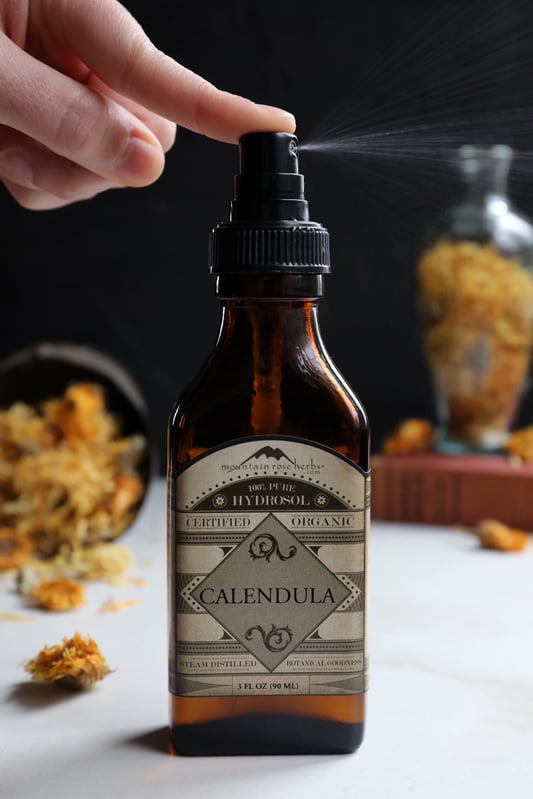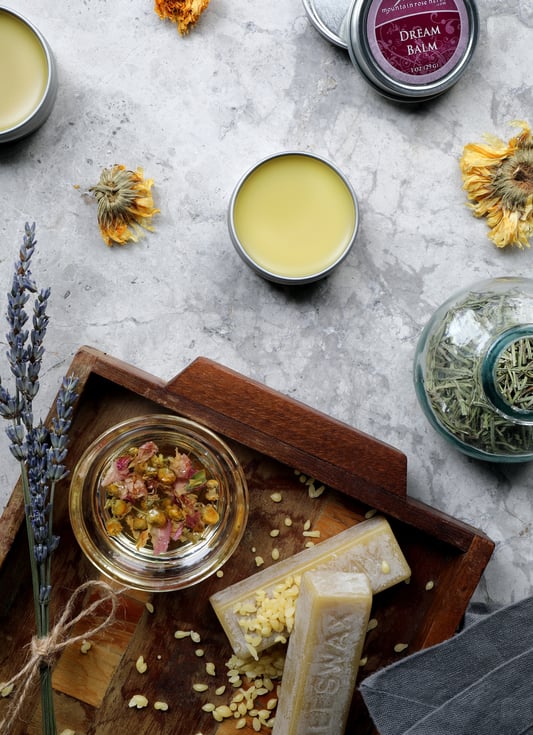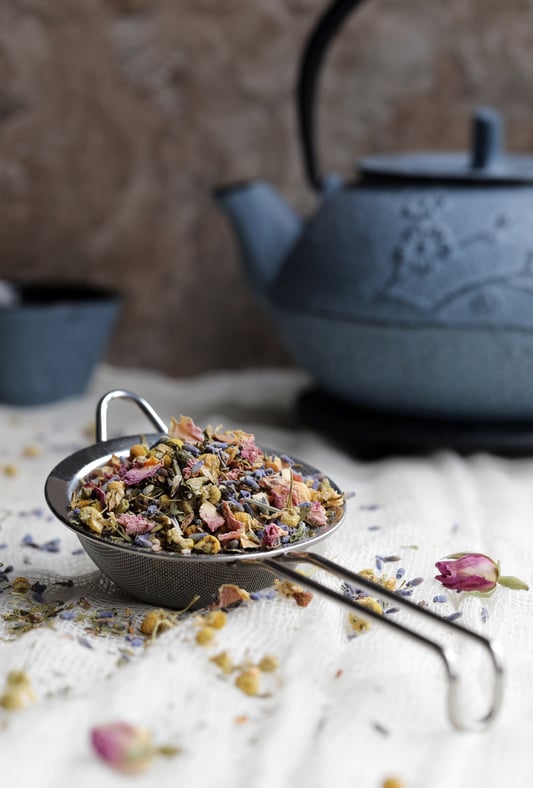Here at Mountain Rose Herbs, we’re frequently asked about various definitions in herbalism. Such as “what’s the difference between an essential oil and an infused oil?”
We thought you'd appreciate a simple guide to herbal terminology. Here are 10 definitions for your learning pleasure! Please let us know if there are any other definitions you’d like to see here! We'd love to add to this list in the future.
Aromatherapy
Aromatherapy is the practice of using volatile plant oils to maintain wellness. The burning of incense during meditation, spritzing hydrosols on your skin after a shower, relaxing in a lavender-filled bath, or diffusing essential oils to brighten your space can all be considered aromatherapy.
Decoction
Decoctions are simmered teas that are perfect for the extraction of constituents from hard roots, dried berries, barks, seeds, and mushrooms.
HERE’S THE BASIC METHOD FOR MAKING A Decoction:
- Place 1 tablespoon of dried herb into a small saucepan.
- Cover the herbs with 1 cup of cold water, and then slowly heat the water to a simmer and cover.
- Allow to gently simmer for 10-20 minutes.
- Strain the herb, and reserve the tea in a quart jar.
Essential Oil
Essential oils are pure, condensed aromatic compounds that have been produced most often by distillation. They can also be made from cold-pressing (citrus oils) or absolute extraction, which requires a solvent. Essential oils are used in aromatherapy by adding to room and body sprays or diffusers. They can also be found in natural body care products, hair care blends, massage oils, perfumery, natural cleansers, and meditation blends.
Glycerite
Glycerites are an excellent choice for administering herbal support for folks who are sensitive to alcohol for any reason. Glycerine is an alcohol-free solvent used for extracting constituents from plants. A glycerite has a shelf life of 14-24 months, versus an alcohol extract with a shelf life of 4-6 years. Learn how to make your own herbal glycerite.
Hydrosol
Hydrosols, also known as "floral waters," are produced by distilling fresh leaves, fruits, flowers, and other plant materials. With similar aromatherapeutic properties to essential oils, these aromatic waters are much less concentrated and don't need to be diluted. Their aromas are often soft and subtle when compared to their essential oil counterparts. These goodies usually have a scent similar to their essential oil, but they also can have a greener, grassier note, which comes from the water soluble constituents in the plant material that are not present in the essential oil. Hydrosols are often used in facial toners, creams, body sprays, and room mists.
Infused Herbal Oil
Although they can be prepared in many different ways, infused oils are simply dried plant material that has been infused into a carrier oil and then strained. Popular methods include making solar-infused oils or using a double boiler for a quicker infusion. They can be used in many different herbal preparations such as DIY salves and homemade lip balm.
Infusion
An infusion is basically a way to prepare a tea, steeping plant material in hot water. In herbalism there are several variations. You can have a hot infusion, a cold infusion, or a nourishing herbal infusion. Infusions are usually made with flowers and leaves (a.k.a. the "aerial parts" of the plant). Hot infusions help draw out constituents and aromatic volatile oils.
Here’s the basic method for making a hot infusion:
- Scoop 1 teaspoon (for black, green, or red tea) or 1 tablespoon (for leaf and flower herbal tea) of dried herb into a strainer.
- Heat 1 cup of water until it just comes to a boil.
- Place a strainer in your cup and pour hot water over herbs.
- Then cover to keep the oils from escaping.
- Steep for 3-5 minutes and strain.
Salve
A salve is an herbal product that is typically made from beeswax, herbs, herbal infused oil, and sometimes essential oils. Salves can be crafted for a wide variety of topical uses. Learn how to make your own herbal salves.
Tea
Tea has a couple of different definitions. It can either be in reference to a hot infusion of herbs or the plant Camelia sinensis. Teas are typically brewed with hot water, and the brewing time will depend on the tea that you’re brewing and your taste preference. There are a wide variety of teas to choose from.
Tincture
Tinctures are concentrated herbal extracts with an alcohol base. The difference between a tincture and an extract is that tinctures are always made with alcohol as the solvent. If you are using water, vinegar, glycerine, or any menstruum (solvent) other than alcohol, your preparation is an extract, not a tincture.
want to go deeper?

